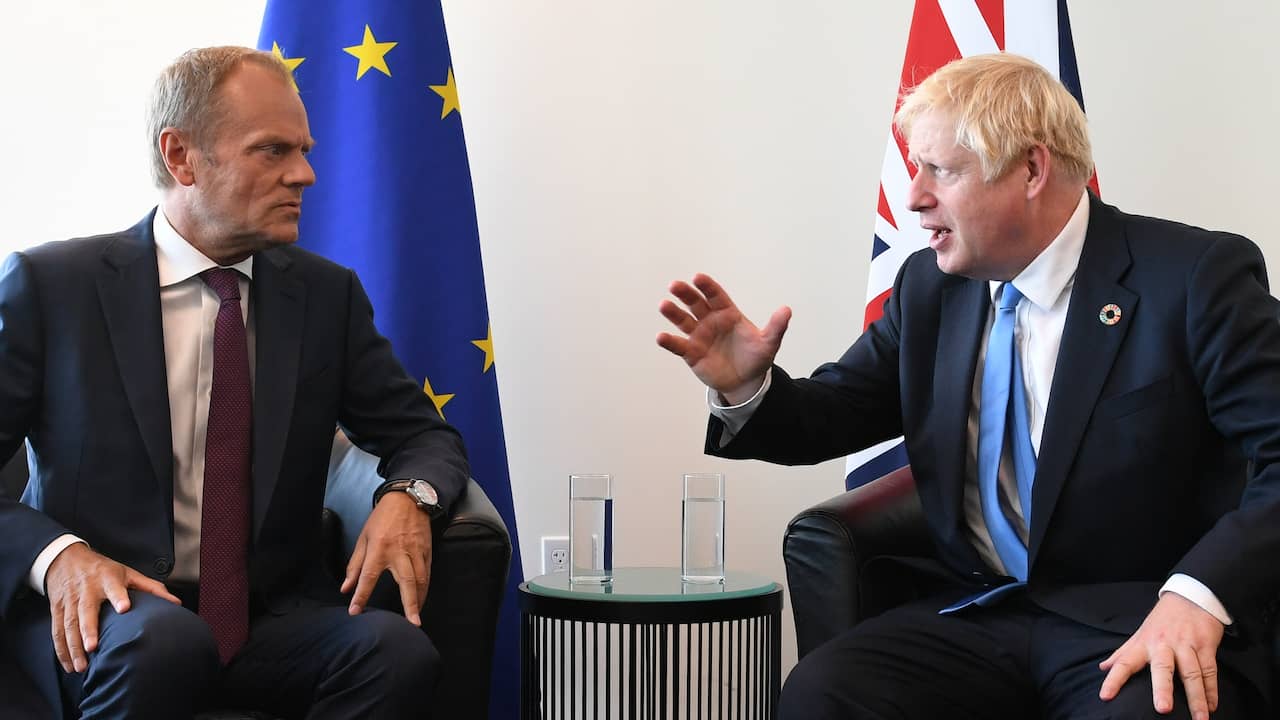As expected, the European Union granted a third Brexit delay on Monday, EU President Donald Tusk reported Monday morning. The UK was supposed to leave the EU on October 31, but the deadline has now been pushed back to January 31.
The date matches the postponement that Prime Minister Boris Johnson requested – reluctantly – in Brussels more than a week ago. If the UK agrees to the deal in the coming weeks, it could leave the EU earlier than January 31.
Documents about the delays circulating among member states were made available Monday morning Guard seen. This includes, among other things, the provisions the EU applies to such delays. For example, a treaty already under discussion may not be open to new negotiations and the UK will have to provide a European Commissioner to the European Commission for as long as necessary.
It also said that the UK could also leave the EU on December 1 or January 1, if London agrees to its exit before that date.
The heads of government of the other 27 EU member states must still give their official approval in the coming days, but this will be nothing more than a formality. If the EU does not grant an extension before the end of October, the UK will leave the EU on October 31 without a deal.
Johnson is trying to get the deal through parliament quickly
Johnson signed an agreement with the EU on October 17 on Britain’s departure. Last week he tried to push his deal through parliament at breakneck speed in the hope that Brexit could be implemented by October 31. However, the House of Commons did not agree to the timetable as MPs wanted more time to discuss the withdrawal legislation. Therefore, they may resume this in the near future. The opposition has prepared many changes to the law, called amendments.
However, the question is whether they will agree on an agreement in London in the next three months. Johnson wants the British people to go to the polls on December 12 because he is fed up with the Brexit deadlock. He previously said he had no intention of entering into further negotiations with this parliament for weeks.
Unfortunately, this content cannot be displayed We do not have permission for necessary cookies. Please accept cookies to view this content.
The House of Commons will vote on a new election later Monday
On Monday, the British House of Commons will vote on a new general election, for which Johnson has submitted his motion. Two-thirds of parliament must agree to this.
The big question is whether Labor, the largest opposition party led by Jeremy Corbyn, wants new elections. The party has not done well in opinion polls and has previously said it would only agree if no agreement could be reached. Johnson, on the other hand, is ahead in the polls. If he wins the election and regains his majority in the House of Commons, it would theoretically be easier for him to get his own deal without making adjustments.
Nieuwsbrief

“Falls down a lot. General tv buff. Incurable zombie fan. Subtly charming problem solver. Amateur explorer.”







